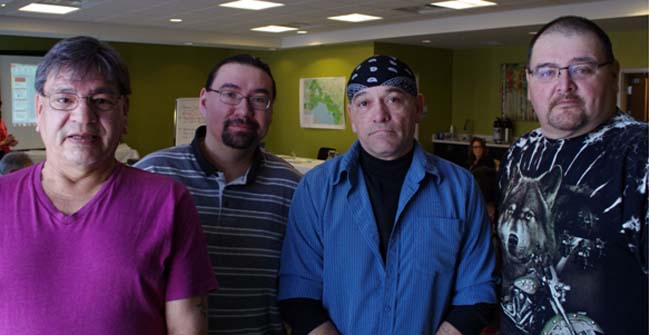Chiefs learn more about infringement at Nokiiwin conference

By Rick Garrick
THUNDER BAY – Impact benefit agreements and the difference between consultation and accommodation and infringement were clarified during a Nokiiwin Tribal Council Investment Readiness Training: Treaty Issues conference in Thunder Bay.
“If it’s going to stop us from continuing a way of life that we are used to in terms of hunting, fishing, gathering, that is when you are going to start infringing,” says Rocky Bay Councillor Frank Hardy. “That is what we have to be really careful and watching for that.”
Julie Abouchar, a partner with Willms and Shier Environmental Lawyers, stressed the difference between consultation and accommodation and infringement during her Impact of the Tsilqot’in and Keewatin Legal Decisions for the Robinson Superior Treaty area First Nations presentation.
“The infringement applies a higher standard to the Crown that the Crown has to meet before taking the steps that it is contemplating,” Abouchar says. “The infringement would apply if a decision of the Crown was going to significantly impair the ability of First Nations to exercise proven Aboriginal title or in some cases proven rights.”
Rocky Bay Chief Bart Hardy appreciated learning more about infringement during the Feb. 10-11 Nokiiwin conference, which was attended by representatives from a number of Union of Ontario Indians communities in addition to his, including Pays Plat and Pic Mobert. Other communities at the conference were Animbiigoo Zaagi’igan Anishinaabek, Gull Bay, Sand Point and Whitesand.
“It’s a real eye-opener for us on putting industry on notice for their duty to consult and accommodate,” says Chief Hardy. “We’ll let them know what we consider consultation, and then if it is not consultation, it is an infringement on our rights and an impact on our traditional use of the land.”
Pays Plat Chief Xavier Thompson says his community developed a consultation protocol about six-to-seven years ago.
“The (question) is how do you make a consultation protocol without being too precise yet general enough that it encompasses everything that can come your way,” Thompson says. “We have had several exercises on that — we’ve dealt with the pipeline and the nearby mines — you’ve got to be prepared for everything and you can’t treat every organization the same. It all depends on a lot of factors.”
Ginger Gibson, director of The Firelight Group, described how to “conduct solid negotiations and achieve good outcomes” during her Indepth look at Benefit Agreements and how to maximize your communities’ potential presentation.
“(We worked) with the communities to help them understand what kind of agreements they can seek with companies, the kind of moments when it is best to seek agreement with companies in their areas and what research needs to be done to support the kinds of claims that communities are making with respect to protecting their country,” Gibson says. “(We provided) information about the kind of economic, business, financial and employment outcomes that people can seek in agreements.”
Thompson says his community has not had much success with impact benefit agreements in the past.
“We’ve actually hit a brick wall with some companies when we start even mentioning impact benefit agreements,” Thompson says. “It seemed that they didn’t want to play ball with that. They just wanted to do consulting.”
Thompson says his community is looking for economic opportunities and education and training services.
“In Pays Plat we have a small group of people and they want a lot of professional services,” Thompson says. “In order to do that, we have to educate our membership.”


